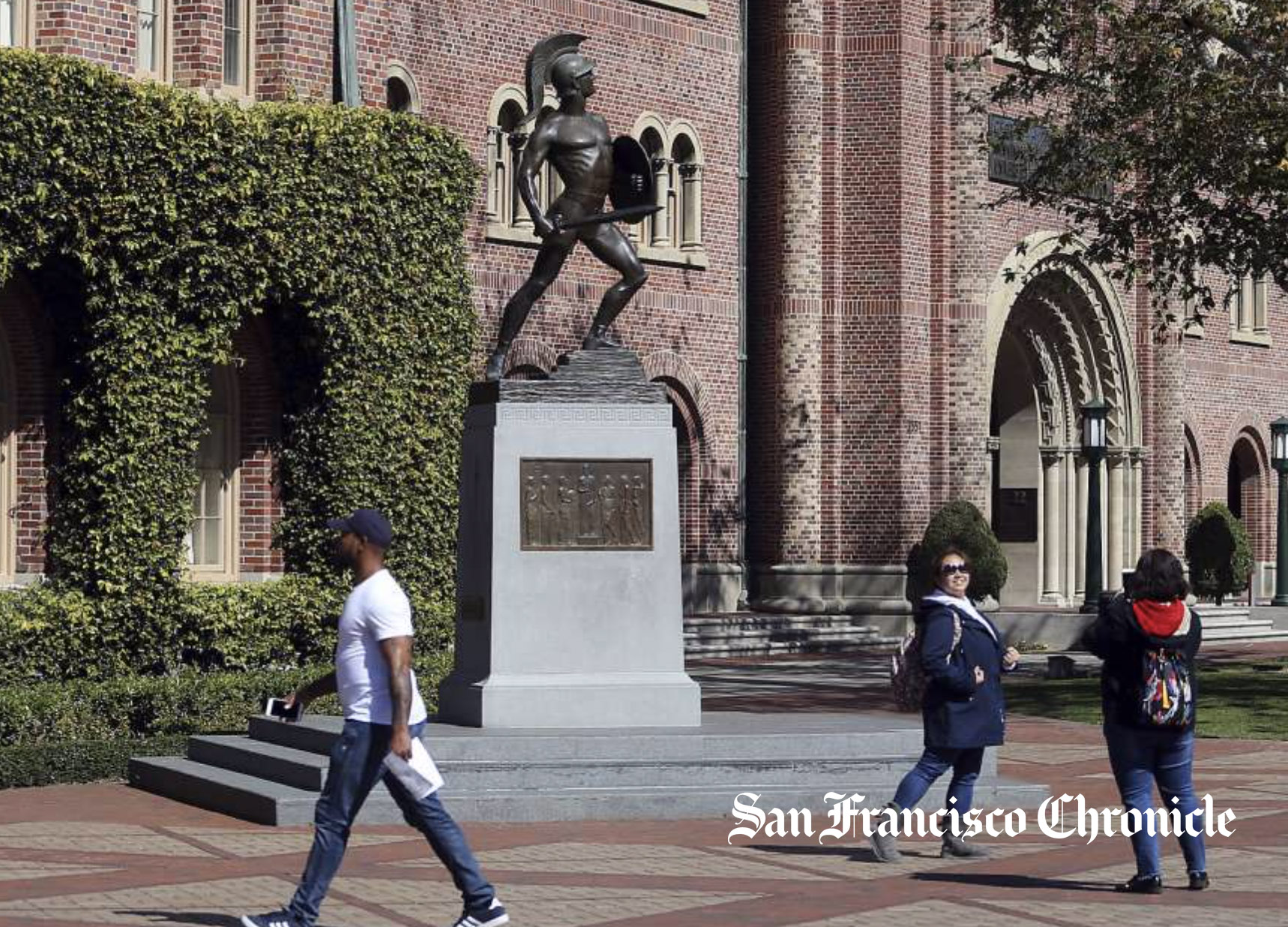It would be easy to get lost in the details and outrage of how the super-wealthy gamed the college admissions system. But that would mean missing a powerful opportunity to use this moment in America to guide us to higher ground. Doing so starts by addressing the cultural message that gave birth to the scandal and the system: The fantasy of “The Right School.”
What our kids need most now is leadership and wisdom: Parents, teachers, college counselors, anyone within spitting distance of a young adult — we’re up.
Our first step is to reflect on the larger picture. We all can agree that what these parents did was beyond wrong. But the cheating and corruption are just symptoms. They are a societal mirror to beliefs that have been normalized, codified, and held up as absolute truths.
The disease? The fear campaign waged on our children from the tenderest age, carrying the toxic message that their future success depends on whether the “right” colleges hand them a golden ticket.
As a writing coach and college consultant for the last 15 years, I saw it in the panicked eyes of every one of my students: the certainty that their lives depended on what happened next.
But most of us can attest to the fact that where you go to school isn’t nearly as important as what you make of where you go. The research has proven beyond any doubt that knowledge and applied skills in one’s field far outweigh a fancy diploma.
So we need to ask ourselves: What is our part in the message that feeds the system and fills our kids’ childhoods with anxiety and psychological pressure? And how can we change that?
For me, it’s meant coming to terms with my personal role in the machine — and closing down my consulting business. It’s meant recognizing two things. One, my service gave an unfair advantage to the privileged few over the majority of applicants who couldn’t afford it. And two, even if I helped students with integrity, I still acted as an accomplice in a system that told them they couldn’t get to the “right” school on their own.
For you, take a moment to look at the truth of your own life. Did where you went to school determine your happiness or success in life? Most of us would agree that everyone spends a lifetime cracking that code themselves, and one’s alma mater is a small piece of the equation.
We also need to help kids not be so afraid of rejection. Remember, this is the generation that’s been awarded trophies just for showing up. For many kids, the prospect of college rejection is terrifying. It’s not just their future that feels at stake, it’s their identity, a thundering judgment of their self-worth.
Our job is to help them gain perspective. A college rejection is not the foreshadowing of a new, failing trajectory. It’s one answer coming from a very imperfect admissions process run by a room of stressed-out directors trying to figure out how to make objective choices out of subjective information.
It might help if we start coming clean to our kids about our own failures, and what we learned from them. As parents, our most profound moments of self-doubt and rejection are valuable currency to our kids. Sharing honestly connects us to them on an adult level and will help them normalize this time in their lives.
It will take years to dismantle the institutional discrimination of the admissions process. But as parents, we can start by waking up to the damage we do to our kids when we are either participants or bystanders in the delusion of the “right” college. Because as long as this mind set drives our society, we all lose.
“Your generation has basically ruined it for my generation,” our 17-year old son said to me the other day. “The only example we have of what being an adult should be like, and what society should be like, is you. So when we see all this happening, what does that tell us about the future? How is my generation going to act? And whose fault will it be?”
Our highest calling as parents is to teach our children what matters. Let’s make the most of this moment.
This article was originally published in the San Francisco Chronicle.





